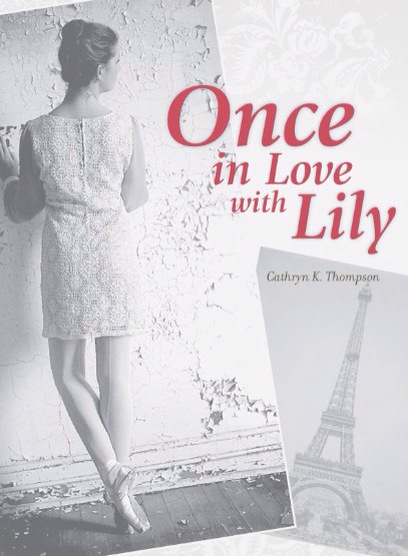An Old Lady’s Random Thoughts on Writing and Fanfic
My twelve-year-old daughter loves to watch The Golden Girls with me in the evenings. She finds Sophia amusing and thinks Blanche is the best character ever! (Thankfully, she does acknowledge that Blanche has some issues when it comes to her obsession with men.) She watches each episode intently, taking everything in for the first or second time. I, on the other hand, can already quote most episodes verbatim, so the other night I decided to do a little writing while we watched.
At one point, during an ad break, she turned to me and asked what I was working on. I told her it was a chapter of a fanfiction story. To which she replied, “You need help, Mother! You write fanfiction as a forty-five-year-old woman! Most people get over that in like… eighth grade!” (Yes, all the exclamation points are necessary. Everything with her is very dramatic!)
A moment later, the show came back on, and there was no responding to her. Actually, even if the show hadn’t come back on, she probably would have ignored my response. She tends to ignore most things I say these days. That is, when she’s not groaning or rolling her eyes at my comments. The poor child. It is hard to put up with me. So many of my ideas are completely annoying, archaic, or completely absurd. Anyway, she probably wouldn’t have listened, but if you’ve read this far, you might be apt to continue, so I’ll share my thoughts with you.
It is true that many middle school students write fanfiction. Many of my students do. Some of them may even write it reasonably well, though I probably couldn’t begin to tell you what their stories are based on. It could be about a Netflix series, a YouTube Channel, or a Tik Tok video for all I know. And their motivations, like mine, are probaby personal. I do not object to teenagers expressing themselves in this way. In fact, I encourage it. Writing, even for fun, is how writers get started. Writing anything and everything is how writers keep going. It’s how we hone our skills. New writers, experienced writers, even delusional old-lady writers like me.
Many people of all ages read and write fanfiction. My Twitter friends can attest to that. Why? Maybe because we want to right an on-screen wrong or explore an alternate outcome. (If the 1992 film Wayne’s World could explore the Mega Happy Ending and the Scooby Doo Ending, why can’t we?) And sometimes we write it because the show or the storyline has ended and we just want more. More adventures, more explanations, more romance… Whatever the reason, it boils down to one simple truth. We want to give more life to the characters we love. That’s no different than TV execs creating spin offs. How else would we have gotten form Dallas to Knots Landing or Dynasty to The Colbys. (Okay, money could be a factor in those cases, but the people who watched them wanted more. And maybe not all spin-offs were quality. As much as I love The Golden Girls, Golden Palace was no gem. But I digress.) Fanfiction writers are like novelists creating a series of prequels or sequels so they can explore the backstories or happily ever after bits. The difference is, we’re not doing it for money, we’re doing it for love of the game.
When I’m not working on my novels, I write about Soap Operas. Specifically, my most favorite characters ever from General Hospital – Robert and Anna. I didn’t create those characters, but I know them. (Maybe better than the writers on the show, but that’s an entirely different post! Shhh!) And writing about them gives me a chance to delve into their psyches and walk around in their heads. It’s great practice for working on character development and definition, even if the are not CKT originals. Writing their stories allows me to stand on a familiar shore, but wade into a whole new sea of writing experiences. I can keep exercising my romance muscles (Does that sound a little risque to anyone else? Too bad, I’m leaving it!), but learn new strokes in mystery, suspense, and intrigue. The extra practice helps me with style and presentation as well. So why should a serious writer spend time writing such a frivolous thing as fanfiction? If I can improve my skills and have a good time doing it, why wouldn’t I?
There is one risk that comes with writing a just-for-fun piece. I remind myself of this risk frequently. (Here it comes. #WriteTip by Cat K Thompson) Don’t let frivolity and fun lull you into a false sense of security. Enjoy yourself, but remember, if you intend to share the piece online or anywhere else, you want it to be a respectable piece of writing. Honor the characters. They are worthy of the time it takes to create a quality piece. If your organization is all over the place, if your grammar is a mess and you don’t know how to punctuate, it will affect the reader’s experience. Some readers may not care. They may read it anyway, just for fun. But your style and use of language will say something about you as a writer and can definitely affect the delivery or intent of the material, especially with regard to dialog. This is less of a concern for those who are casual writers than for those who also hope to encourage people to read their published works. (Don’t let me get started on Indie Authors who thing editors are unnecessary! That’s another post too!) But I think it’s reasonable to say that most of us want our readers to enjoy reading our stories as much as we enjoy writing them.
Now, back to my daughter’s observation and what she doesn’t know. She doesn’t realize that I actually wrote my first piece of #GH #RnA fanfic when I was a freshman in high school. Truth be told, I didn’t realize it then either. That was before FanFiction.Net. Possibly even before the internet. (I’m that old!) I didn’t know that what I was writing had a name. All I knew what that I had to write a one act play and create some cover art for an assignment in English class. I came up with a play called Opposing Forces about two international spies who fell in love and were on the run from their archnemesis, Klaus. The beautiful heroin, who was shot and died in the arms of her gorgeous, blue-eyed lover at the end of the act, bore a striking resemblance to my favorite soap character. Of course, even if I had called it fanfiction, I probably wouldn’t have had the guts to admit my love of General Hospital to my teacher, and certainly not to my classmates. But I’m older and wiser now. I know who I am. I like who I am. I like what I write. So, to my darling girl I say, as long as there are still people out there who want to read my fanfic, (Many of whom are also hovering around the big four-five! #JustSaying) I’m going to keep writing it!
Note: For those who are wishing I would stop writing fanfic and finish that darn book… I hear you! Suffice it to say that it has been a complicated couple of years in both life and writing. I promise I am working on it. I promise I will do my very best to ensure that, when the third book in the Lily trilogy finally arrives, it will have been worth the wait. Your support and encouragement are appreciated more than you know!


 What do you do when your plans of hiking and enjoying the natural beauty of Hocking Hills are rained out? Easy. You visit the local winery, grab a pizza at a nearby restaurant, then find a cozy spot in front of the fire and catch up on all the things you’ve been wanting to do since school started last fall. You nap, you read a good book (
What do you do when your plans of hiking and enjoying the natural beauty of Hocking Hills are rained out? Easy. You visit the local winery, grab a pizza at a nearby restaurant, then find a cozy spot in front of the fire and catch up on all the things you’ve been wanting to do since school started last fall. You nap, you read a good book (
 “A big-hearted romantic melodrama with cinematic movements and charming storytelling makes a familiar trope soar. In this well-paced storyline, Lillian (Lily) George, knowing her disquieting past, recognizes the value of her current affluent lifestyle until she unexpectedly reconnects with her first love. Zany secondary characters leap off the pages, while the tension created as Lily decides her future keeps readers holding their breath until the very end and hoping for a sequel.”
“A big-hearted romantic melodrama with cinematic movements and charming storytelling makes a familiar trope soar. In this well-paced storyline, Lillian (Lily) George, knowing her disquieting past, recognizes the value of her current affluent lifestyle until she unexpectedly reconnects with her first love. Zany secondary characters leap off the pages, while the tension created as Lily decides her future keeps readers holding their breath until the very end and hoping for a sequel.” Will the sequel
Will the sequel 
